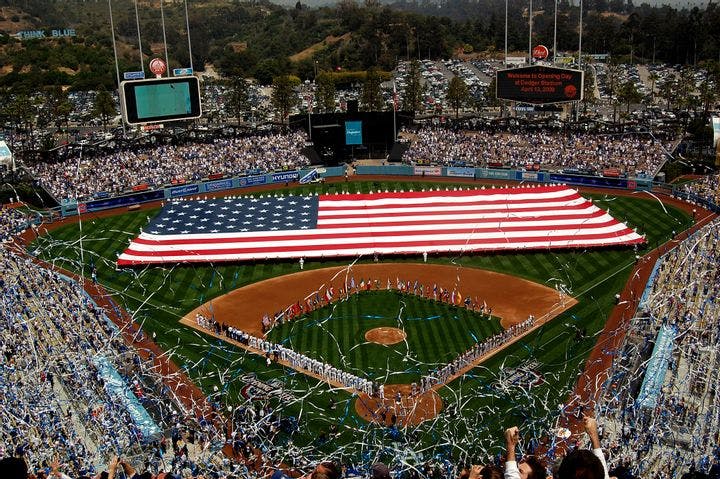Fall 2013
We’re all exceptional now
– The Wilson Quarterly
An ancient force is back, and it’s causing trouble worldwide.
Strategists are still struggling to pin a label on the period of international politics that began with the collapse of the Soviet Union in 1991. It has been called everything from unipolar to multipolar to nonpolar and now, because of the rivalry between the United States and China, bipolar. Some contend that the era is defined by terrorism, while others speak of a clash of civilizations or even a looming World War incited by radical Islam.
Pinning a label on the era we live in is more than a name game; it helps define how we think about international affairs. Paul Pillar, a former CIA official now affiliated with Georgetown University and the Brookings Institution, thinks he’s figured it out. Welcome, he writes in The National Interest, to the Age of Nationalism.
That might sound rather passé. After all, the modern nation-state was born in the mid-17th century, and nationalism flowered with the French Revolution. The ensuing century saw ceaseless tumult as Slavs, Italians, Germans, and others struggled to create sovereign states of their own. That brand of ethnic nationalism was the spark that famously ignited the first World War and set the stage for the second, which became an ideological conflict between fascism and its capitalist and communist antagonists.
After the 1940s, some analysts were sure they’d seen the last of nationalism. Decolonization became a preoccupation as the European powers retreated, but it was overshadowed by the ideological conflicts of the Cold War. Clashing principles, not clashing peoples, were the new source of global conflict.
Then the Cold War ended. Tensions between the political Left and Right that had stolen the stage for so long suddenly dissolved, Pillar says, revealing the powerful nationalist elements that had been brewing. The basic ingredients — a yearning for sovereignty and loyalty to one’s country — were centuries in the making and were expressions of fundamental human desires for attachment and community. Former colonies in Africa and Asia had recently congealed into independent states with distinct national identities. With socialism and imperialism out of the way, nationalism could finally culminate in its “full and unfettered form,” Pillar explains.
And today, it’s everywhere you look.
In China, the Communist Party rhetoric of yore has faded, giving way to nationalist themes better suited to the country’s capitalist turn. Vladimir Putin yells in a similar key. China’s assertiveness in the South China Sea and elsewhere, meanwhile, has raised the temperature of nationalism in Vietnam and other Asian countries. In Japan, a nationalist spirit that was virtually extinguished by World War II has come roaring back under Prime Minister Shinzo Abe. Demands for self-government have driven decades of conflict involving Israelis, Palestinians, Kurds, and others.
Even the European Union, a triumph of supranational institution-building, has been hobbled by nationalist sentiments and stereotypes as it struggles to deal with an economic crisis, and nationalist pride increasingly permeates European culture, “from soccer tournaments to the Eurovision Song Contest.” In Britain, nationalists demanding a withdrawal from the EU are making impressive headway — and so are Scots who agitate for secession from Britain.
Nationalism is going strong in the United States, too, though Americans know it by a different name. American exceptionalism, grown “muscular” from decades of exercise, manifests itself in bold international interventions such as those in Iraq and Afghanistan, and in the smallest gestures, such as wearing American flag lapel pins. But the “chief prescriptive implications” of living in a nationalist age all involve “knowing oneself,” Pillar believes.
Our first impulses are not often our wisest. Americans need to be attuned to broadly shared nationalist impulses of other countries and carefully consider whether or not to “step on someone else’s nationalist sentiments.” Often that will mean that the United States should do less than it might. In other cases, such as the Palestinian-Israeli conflict, it might call for doing more.
THE SOURCE: “The Age of Nationalism” by Paul R. Pillar. The National Interest, September/October 2013.
Photo courtesy of Acclaim Images
